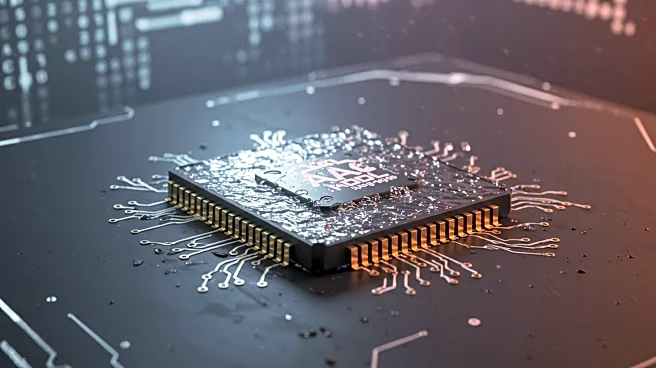What's Happening?
Nvidia has halted production of its H20 AI chips after Beijing warned Chinese companies against using them due to potential security issues. Concerns have been raised about backdoors that could allow U.S. access to sensitive data. This decision follows a recent approval for Nvidia to sell AI chips in China, aimed at regaining market presence. Despite assurances from Nvidia that their chips do not contain backdoors, the Chinese government is urging companies to use domestic alternatives.
Why It's Important?
The suspension of H20 chip production by Nvidia underscores the impact of geopolitical tensions on the technology industry. China's push for domestic chip usage reflects its strategy to reduce dependency on foreign technology, which could alter the competitive landscape for U.S. companies like Nvidia. The situation highlights the importance of cybersecurity in international trade and the challenges faced by companies navigating complex regulatory environments.
What's Next?
Nvidia may need to explore alternative strategies to address the security concerns raised by Beijing and maintain its market position in China. This could involve enhancing cybersecurity measures or collaborating with Chinese firms to develop technology that meets local standards. The broader implications may include increased investment in domestic semiconductor production by China, potentially reshaping global supply chains.
Beyond the Headlines
The halt in production raises questions about the balance between innovation and security in the tech industry. As countries prioritize national security, companies may face increased scrutiny and regulatory challenges. This could lead to shifts in global technology policies and influence the future direction of semiconductor development.










